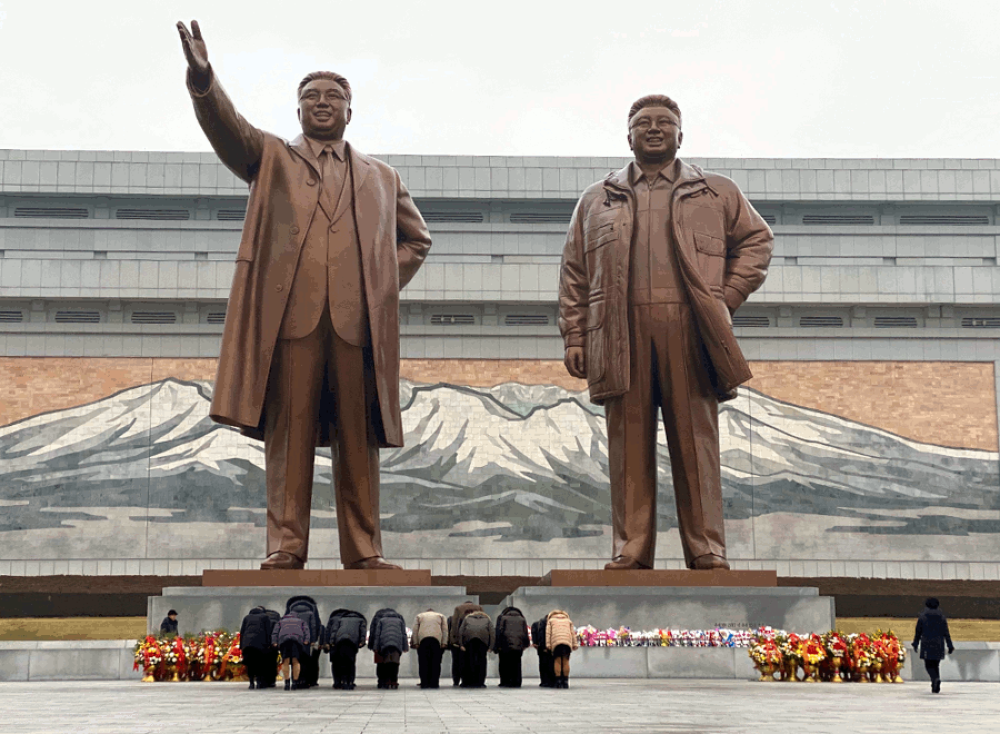

The Mansu Hill Grand Monument is one of the most iconic landmarks located in the heart of Pyongyang, North Korea's capital. Known for its towering statues and grandiose display of state-sponsored art, it stands as a powerful symbol of the country’s political history and ideology.
The highlight of the monument is the two enormous bronze statues of the late leaders Kim Il-sung and Kim Jong-il. The original statue of Kim Il-sung, which was unveiled in April 1972, commemorates his 60th birthday. Later, in 2012, following the death of Kim Jong-il, a similar statue was erected beside his father's to ensure their eternal presence overseeing the nation.
The surrounding monuments include sculptures depicting the anti-Japanese revolutionary struggle and the socialist revolution, showcasing stories of heroism and the nation’s struggle led by the Workers' Party of Korea. The statues are upheld as a sacred pilgrimage location for North Korean citizens and visitors, with many paying respect through flowers and bows.
North Korea is one of the most secretive countries in the world, which extends to its tourism industry. Tourists are typically only allowed to enter the country as part of guided tours, which are closely monitored by government-appointed guides.
Tourism in North Korea has a dual purpose: it serves as a significant source of foreign currency and provides a controlled environment through which the state can promote its version of history and ideology to visitors. Tourist activities are strictly supervised, and there is an emphasis on visiting sites that showcase North Korea's prowess, such as the War Museum, the Juche Tower, and Kim Il-sung Square, where the Mansu Hill Grand Monument is a pivotal feature.
In recent years, North Korea has attempted to increase tourism by promoting various attractions, from its natural beauty to city landmarks. Specialized tourism, such as marathon tours, historical tours, and even surfing experiences, have been introduced to attract a more diverse group of tourists.
However, the COVID-19 pandemic has immensely impacted North Korea's tourism, with the country having closed its borders to international tourists since early 2020, which drastically affected the already limited access. The future of tourism trends in North Korea will greatly depend on geopolitical developments and global health situations.
Visiting the Mansu Hill Grand Monument remains a carefully orchestrated experience, designed to leave an impression of reverence for the country's leaders and its revolutionary history. Despite the controlled nature of tourism in North Korea, the country continues to intrigue travelers from around the world with its enigmatic presence and unique approach to state narrative.